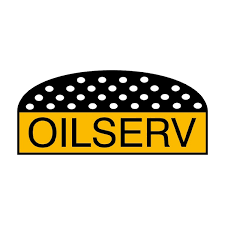Confined Space Entry Course
confined spaces are marked as highly technical spaces to enter and work in, to be qualified to enter any confined space, the entrant must have completed this training and received a certificate.
Upon successful completion of the Confined Space Entry course, participants should be able to identify potential hazards, assess risks, implement control measures, and perform safe entry and rescue operations in confined spaces.
FOR CORPORATE BOOKING
It’s a lot easy for companies (corporate) to book courses their personnel courses with us, we are very flexible.
What You Will Benefit When Your Book Corporate Training With Oil Train:
Training Time Flexibility
Quality training facility
Tailored Training Delivery Mode
Training venue flexibility ( We can deliver this training at your location)
- Hard copy certificate sent to you
To book:
send a request to [email protected]
Call Or Whatsapp
+234703248614
Job Connect
Join Our Manpower Supply network


Course Outline
Introduction to Confined Spaces
- Definition and classification of confined spaces
- Characteristics of confined spaces
- Importance of confined space safety
Legal and Regulatory Requirements
- Overview of relevant legislation and standards
- Roles and responsibilities of employers and employees
- Permits and procedures for confined space entry
Hazards in Confined Spaces
- Atmospheric hazards (e.g., lack of oxygen, toxic gases)
- Physical hazards (e.g., engulfment, entrapment)
- Biological hazards (e.g., molds, bacteria)
- Hazardous substances and their effects
Risk Assessment and Control Measures
- Hazard identification and risk assessment techniques
- Engineering controls (e.g., ventilation, isolation)
- Administrative controls (e.g., entry procedures, training)
- Personal protective equipment (PPE) requirements
Atmospheric Monitoring and Testing
- Purpose and importance of atmospheric monitoring
- Gas detection equipment and their use
- Procedures for conducting atmospheric tests
- Interpreting and responding to monitoring results
Safe Entry Procedures
- Pre-entry preparations and inspections
- Lockout/tagout procedures
- Entry permits and entry teams
- Communication protocols
Confined Space Equipment and Tools
- Types and proper use of equipment (e.g., lighting, communication)
- Inspection and maintenance of equipment
- Rescue equipment and procedures
Emergency Procedures and Rescue Techniques
- Emergency response planning
- Non-entry rescue techniques (e.g., retrieval systems, tripod)
- Entry rescue techniques (e.g., self-contained breathing apparatus, stretcher use)
- Communication and coordination during rescue operations
Practical Exercises and Simulations
- Simulated confined space entry scenarios
- Hands-on exercises for hazard identification and risk assessment
- Practice with equipment and rescue techniques
Case Studies and Review
- Review of real-life confined space incidents and lessons learned
- Discussion of best practices and preventive measures
- Final assessment and course evaluation
On successful completion of the Fire Fighting course, every participant will get a NUPRC and OSHA accredited certificate, ( certificate is accepted internationally)
The participant will also have the option to get
- Self Breathing Safety Certification ( optional N30,000)
First Aid and CPR certificates
( optional N30,000)
Registration Is Ongoing:
- Register at any of the training centers nationwide
- Register by filling out the form and making payments online. ( click here to fill the registration form)
- WhatsApp +234 7036248614 to start your registration process.
Port Harcourt:
17 Sentel, East, West Road, Port Harcourt
Lagos:
No 2 Allen avenue, Ikeja Lagos
Other Locations we can deliver this training for corporate requests:
Ibadan, Warri, Calabar, Eketi, Enugu, Abuja, and others.
Online training available for this course:
To complete this training online Email: [email protected]
Frequently Asked Questions (FAQs)
Who needs a Confined Space Course?
confined space entry certificate is needed for everyone who wants to work in technical industries like the Oil and gas, engineering, and Marine industries
How many certificates will I receive after this course?
On completion, the participant will get one (1) certificate with an option for extra 2 certificates.
What certification will I get after completion of this training?
on completion, participants get an OSHA certificate.
Testimonies

Our Accreditation & Standards








